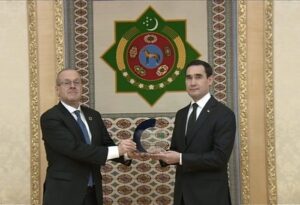Chinese Researchers Pioneer Minimally Invasive HOCM Treatment

Wuhan, The Gulf Observer: Chinese researchers have developed a groundbreaking beating-heart myectomy system and a minimally invasive procedure to treat hypertrophic obstructive cardiomyopathy (HOCM), drawing significant global attention. The study, led by Professor Wei Xiang from Tongji Hospital in Wuhan, was published in the Journal of the American College of Cardiology.
HOCM affects an estimated 2 to 5 million people in China and approximately 15 to 20 million worldwide, posing a serious health threat. Traditionally, the treatment for HOCM involves highly invasive open-chest surgery to resect the hypertrophic myocardium. This method is not only technically challenging but also carries high mortality rates, particularly in hospitals with less experience.
The novel transapical beating-heart septal myectomy procedure developed by Wei and his team has revolutionized the treatment of HOCM. This procedure allows for the precise resection of hypertrophic myocardium without the need for chest opening, cessation of the heartbeat, or blood transfusion. This advancement addresses the limitations of traditional open-chest surgeries and offers a safer, less invasive alternative.
“In the field of HOCM surgery, we used to follow the world, but now we are keeping pace with it or even leading,” Wei remarked.
Wei Xiang was recently invited to the Mayo Clinic, a world-renowned cardiovascular treatment center in the United States, to discuss this groundbreaking medical breakthrough. Cardiac surgeons from countries such as the United States, Switzerland, and Italy have also traveled to China to learn about the innovative technology.


